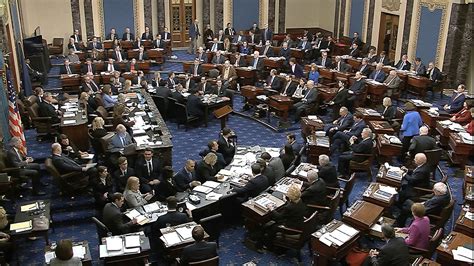Senate Republicans on Wednesday voted to block debate on the $1.2 trillion infrastructure proposal that was previously touted as bipartisan.
A group of 22 Democratic and Republican senators issued a statement to media outlets after the vote that they are “close to a final agreement” and are hopeful that a package will be finalized.
“We will continue working hard to ensure we get this critical legislation right—and are optimistic that we will finalize, and be prepared to advance, this historic bipartisan proposal to strengthen America’s infrastructure and create good-paying jobs in the coming days,” they said in a statement.
It came weeks after senators from both parties reached an agreement with President Joe Biden on the outline of a bill that includes $600 billion in additional spending to rebuild bridges, roads, and other infrastructure. The final vote was 49 in favor and 51 against, short of the 60 votes needed to advance a debate.
“We’re voting ‘no’ today because we’re not ready, but we’re saying we do want to take up this bill as soon as we are—we think that’s Monday,” Sen. Rob Portman (R-Ohio), the lead GOP negotiator in the infrastructure talks, said on Wednesday.
Republican lawmakers said before the vote that they wouldn’t consider the bill while some details remain unresolved. They argued that the measure lacks adequate sources of revenue, coming after lawmakers dropped a provision to raise money by expanding the Internal Revenue Service (IRS)’s tax enforcement arm.
Some left-wing Democrats said they wouldn’t vote for the measure unless they get assurances that a larger, $3.5 trillion bill can be passed. At the same time, Senate Democrats have been working to obtain more support to pass that measure using a special process known as reconciliation, which enables them to advance a bill with a mere simple majority.
Republicans have said that the two-step approach to pass the larger bill would undercut the bipartisanship of the infrastructure measure.
Senate Minority Leader Mitch McConnell (R-Ky.) again reiterated his opposition to the bill Wednesday, saying that large spending is “the last thing American families need.”
Senate Majority Leader Chuck Schumer (D-N.Y.) had insisted on holding the vote on Wednesday because it was time to start debating the measure on the Senate floor after weeks of negotiations. Additionally, Schumer said Tuesday that the Senate won’t break for its typical August recess until Democrats reach some kind of agreement on the measures.
Regarding the larger budget bill, some centrist Democrat senators have yet to publicly commit to it, although Sen. Angus King (I-Maine), who caucuses with Democrats, told the Wall Street Journal that talks are ongoing.
“In general I think that the proposal makes sense, there’s been no explicit ‘Do you agree with everything in it?’” he said, adding: “I think it’s a strong proposal, that doesn’t mean I’m married to every single item.”

